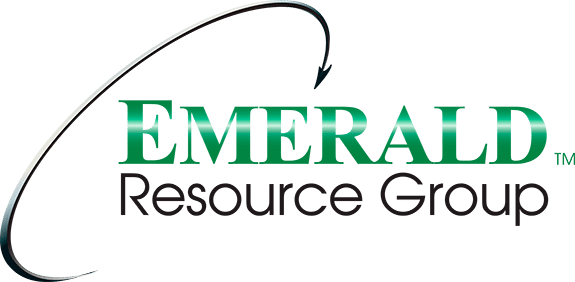In the world of accounting and finance, the audit process often shrouds itself in mystery and complexity. However, behind the scenes lies a structured and methodical approach designed to provide assurance and integrity to financial information. In this comprehensive guide, we’ll peel back the layers of mystery surrounding audit procedures, shedding light on each step of the process and empowering accountants to navigate the audit journey with confidence and clarity.
Opening the Curtain: Understanding the Essence of Auditing
At its core, auditing serves as the guardian of financial integrity, ensuring the accuracy and reliability of financial information for stakeholders. By examining transactions, reviewing records, and assessing internal controls, auditors play a critical role in upholding transparency and accountability in the business world.
Setting the Stage: Clarifying Audit Objectives and Goals
Before embarking on an audit engagement, it’s essential to establish clear objectives and goals. Whether it’s providing assurance to stakeholders, detecting fraud, or evaluating internal controls, defining audit objectives lays the foundation for a successful audit process and guides auditors in their quest for financial truth.
Plotting the Course: The Importance of Strategic Audit Planning
Just as a captain charts a course before setting sail, auditors must meticulously plan their audit engagements to ensure success. From understanding the client’s business and risks to developing an audit plan and timeline, strategic audit planning sets the stage for a smooth and efficient audit process.
Navigating the Risks: Assessing and Addressing Risk Factors
In the turbulent seas of business, risks abound, threatening the accuracy and reliability of financial information. Through rigorous risk assessment and analysis, auditors identify potential risks of material misstatement in financial statements and develop strategies to mitigate these risks, safeguarding the integrity of the audit process.
Gathering Clues: Unraveling the Mystery of Audit Evidence
Like detectives piecing together clues to solve a case, auditors gather evidence to support their findings and conclusions. From documentation and observation to inquiry and analytical procedures, auditors employ various techniques to gather and evaluate audit evidence, ensuring the accuracy and completeness of financial information.
Unlocking Safes: Evaluating Internal Controls and Security Measures
Internal controls serve as the locks and safes protecting a company’s assets and financial information. By assessing the design and effectiveness of internal controls relevant to the audit, auditors ensure the reliability and integrity of financial reporting and minimize the risk of fraud or error.
Digging Deeper: The Art of Substantive Testing
Substantive testing lies at the heart of the audit process, providing auditors with assurance about the accuracy and completeness of account balances and transactions. Through tests of details and analytical procedures, auditors delve deep into financial data, uncovering insights and uncovering potential misstatements.
Sampling the Scene: Techniques for Effective Sampling
In the vast landscape of financial data, sampling techniques serve as compasses guiding auditors in their quest for truth. Whether through statistical or non-statistical methods, auditors select samples for testing, ensuring the reliability and representativeness of audit conclusions.
Documenting Discoveries: The Role of Audit Documentation
Like breadcrumbs leading back to the truth, audit documentation provides a trail of evidence supporting audit findings and conclusions. By documenting the nature, timing, and extent of audit procedures performed, auditors ensure transparency and accountability in the audit process.
Reporting Findings: Communicating with Clarity and Precision
At the culmination of the audit process, auditors must communicate their findings and conclusions with clarity and precision. Through the issuance of an audit report, auditors provide stakeholders with insight into the accuracy and reliability of financial statements and offer recommendations for improvement.
Ensuring Excellence: The Critical Importance of Quality Control
In the world of auditing, quality control is paramount, ensuring adherence to professional standards, independence, and ethical considerations. By maintaining rigorous quality control processes, audit firms uphold the integrity and credibility of the audit profession, inspiring confidence and trust in financial markets.
Following the Trail: Audit Follow-Up and Continuous Improvement
The audit journey doesn’t end with the issuance of an audit report—it’s just the beginning. Through audit follow-up and continuous improvement processes, auditors review and evaluate the effectiveness of audit procedures, making enhancements and refinements for future audits.
Staying Compliant: Navigating Regulatory Requirements and Standards
In the ever-evolving landscape of audit regulation, compliance is key. Auditors must navigate a complex web of regulatory requirements and standards, ensuring adherence to auditing standards, laws, and regulations relevant to the audit engagement.
Embracing Growth: The Journey of Continuous Professional Development
Finally, in the pursuit of excellence, auditors must embrace a journey of continuous professional development. By staying updated on changes in auditing standards, regulations, and emerging trends in the audit profession, auditors enhance their knowledge and skills, ensuring they remain at the forefront of the audit profession.
In conclusion, the audit process may appear daunting at first glance, but by demystifying audit procedures and breaking them down into manageable steps, auditors can navigate the audit journey with confidence and clarity. Through strategic planning, rigorous risk assessment, and meticulous attention to detail, auditors uphold the integrity and reliability of financial information, ensuring trust and confidence in the financial markets.
Are you interested in exploring other career opportunities? Contact us today!

